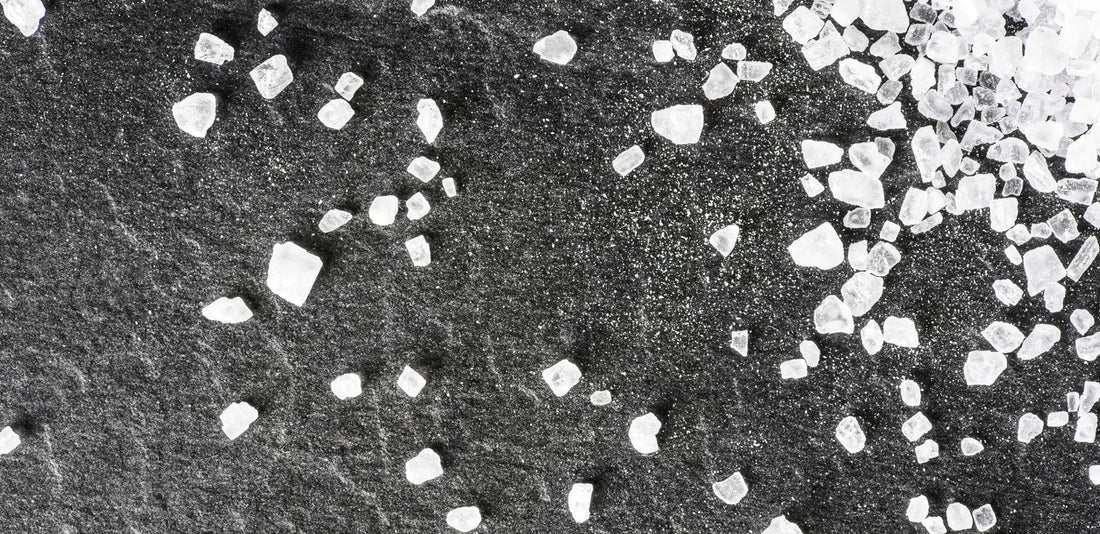
What are Electrolytes and Why Do You Need Them?
Share
You may have heard of electrolytes in the context of sports drinks. But do you know what they do – and why they are important? Electrolytes are minerals in bodily fluids (blood, urine and sweat) that help maintain proper fluid levels in the body.* They also maintain the pH level of the blood and support proper muscle function – and that includes the muscles you work at the gym and the smooth ones in your heart and digestive system.*
When you are intermittent fasting, you continue to excrete and use up electrolytes, but you don’t replenish your stores since you aren’t eating. This is where a beverage containing electrolytes can be helpful. But reaching for a sports drink – even one labeled “diet” – isn’t the best option during a fast since that would break your fast.
During fasting, it’s important to ensure adequate electrolyte intake. When your body sends cues like dizziness, muscle cramps or fatigue, those are indications that electrolyte intake is inadequate.
Read on to learn more about why you need electrolytes and how to get them while fasting.
What are Electrolytes?
Electrolytes are minerals in the blood and other bodily fluids that carry an electrical charge. Maintaining a healthy balance of electrolytes is essential to proper muscle function, nervous system function, hydration and pH levels.*
Electrolytes found in the body include:
- Bicarbonate
- Calcium
- Chloride
- Magnesium
- Phosphate
- Potassium
- Sodium
As essential minerals, they must be consumed as food or supplements – the human body cannot synthesize them on its own. We lose water and electrolytes when we sweat or urinate.
Here are some common foods that provide different electrolytes:
- Calcium: Dairy products, fortified non-dairy drinks, green leafy vegetables.
- Chloride: Table salt.
- Magnesium: Pumpkin seeds, almonds and other nuts, spinach, black beans, edamame.
- Potassium: Dried fruits, beans, lentils, potatoes, winter squash
- Sodium: Pickled foods, cheese, table salt.
What Body Functions Do Electrolytes Support?
Electrolytes are essential for basic, life-sustaining bodily functions:
- They help your brain send signals through the nerve cells to the rest of the body.*
- Your muscles need calcium and magnesium to contract and relax properly (to prevent cramping).*
- Electrolytes balance the fluid levels inside and outside of cells.*
- They also maintain proper pH (acidity and alkalinity) levels in the body.*
They help you replenish what you lose when you sweat and help you absorb water (which is especially important when you are working out or it’s hot outside).
Sodium is essential for maintaining blood pressure, hydration levels and muscle contraction.
Magnesiumis crucial for protein synthesis, muscle and nerve function, blood glucose control and blood pressure regulation.
Potassium supports normal cell functioning, as well as the function of the muscles (including the heart) and nerves.
Calcium is necessary for building healthy bones, and it supports nerve condiction and muscle contraction.
What Impacts Electrolyte Balance?
Your body always wants to be in a state of homeostasis (balance) and that includes your electrolyte levels. Consuming salty food, not eating or drinking for an extended period of time, spending time in the heat, exercising and any activity that leads to sweating can impact the body’s electrolytes.
To feel your best, it’s important to stay hydrated and maintain steady levels of electrolytes. Why do we need more than water? Electrolytes need to maintain the proper balance of fluids inside and outside of cells. You’ve probably felt the difference between being hydrated, feeling thirsty and maybe overdoing it salty foods.
To simplify the science, think of the inside of a cell as the hot club where everyone wants to be. Of course, there’s a fire code, so not everyone can go inside – and there’s a bouncer outside the club to ensure only the “right” people get in. Yes, your cells need water, but they also need electrolytes to penetrate the membrane of the cell, not overcrowd it – and keep the peace.
Why Do You Need Electrolytes During a Fast?
These minerals maintain optimal fluid levels to help you remain hydrated. During a fast, you continue to excrete and use up electrolytes, but you aren’t taking them in via food. Consuming them in a beverage form can help you feel your best without breaking your fast.*
Adding a pinch of salt to a glass of water isn’t the best approach, since salt is mostly sodium and your body needs all the electrolytes to function optimally.
That’s where Fasting Today® comes in. It’s formulated to not break your fast – with electrolytes, baobab fiber and amino acids.* This drink mix for intermittent fasting lets you focus on your goals (not the clock). Also ideal for ketogenic and other diets, Fasting Today® supports hydration, reduces hunger and promotes muscle health.*
We formulated Fasting Today® to be the ultimate drink mix for intermittent fasting.* Electrolytes promote hydration and support healthy cell and organ function.* They are ideal for pre and post exercise or daily intake. Fasting Today includes an electrolyte complex (sodium chloride, potassium bicarbonate and magnesium oxide) plus calcium carbonate. While fasting, electrolytes can help you maintain optimal hydration, while also supporting cardiovascular and brain function and helping to minimize cramping.*

